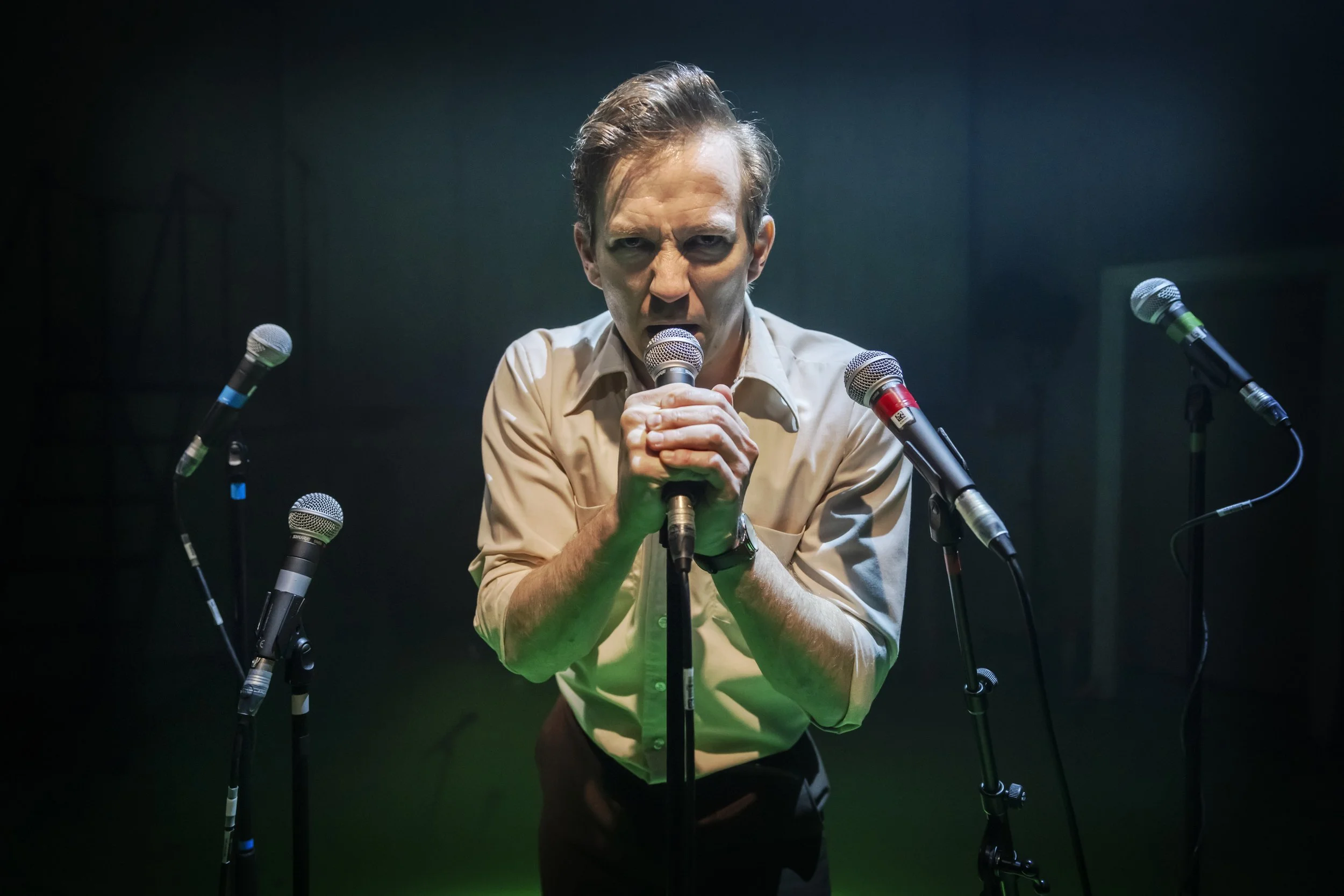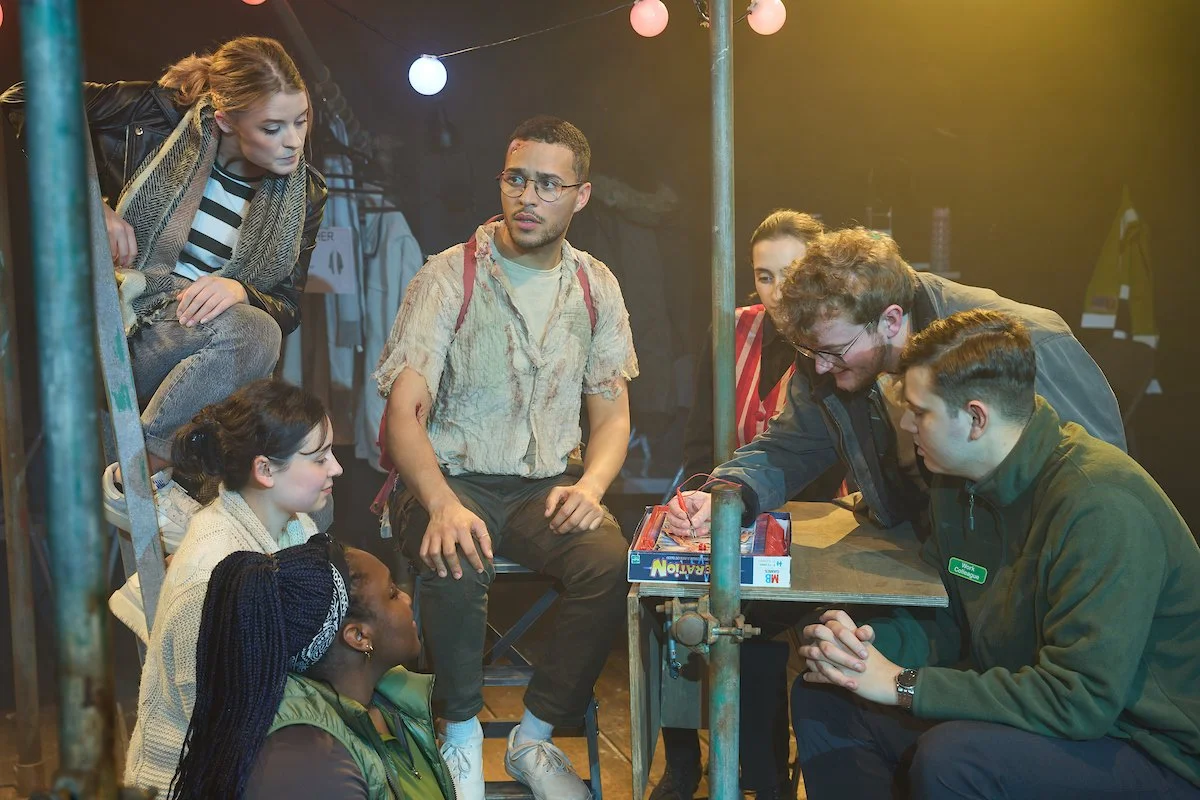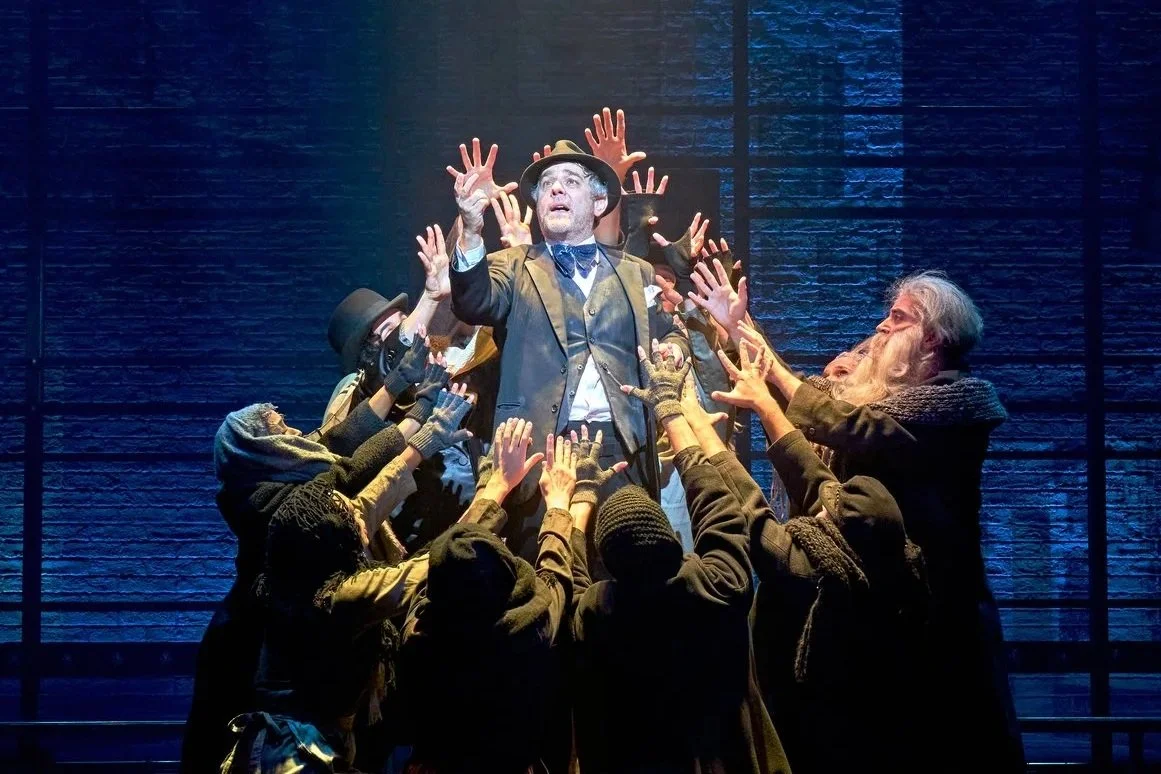Canned Goods, Southwark Playhouse Borough Review
Canned Goods production image. Photo by Mark Senior
Written by Amelia for Theatre and Tonic
Disclaimer: Gifted tickets in exchange for an honest review
Set in Germany in 1939, Canned Goods tells the story of what could be classed as the first death of World War 2. Exploring the mostly unknown moment in history that really should be taught in school, this gripping play discusses how those in power can falsify facts to fit their own narrative and emphasises parallels to our present day. Beginning at the very start of the war, the production delves into the final twenty four hours of three men, who were code-named ‘Canned Goods’ by Heinrich Himmler. They were used to stage a violent Polish attack on a German radio station, as a ploy to justify an attack on Poland by Hitler.
Faced with an undeniable fate, the three men, all dissimilar to one another, wrestle with what they know is about to happen and whether they can survive it. We are first introduced to Franciszek Honiok, a 43-year-old German farmer, played by Tom Wells. He is unknowingly taken from his farm one morning and ends up arrested and imprisoned in a jail cell on the border. Wells also doubles as the Führer himself, delivering powerful speeches between scenes. This is where Wells truly shines, completely believable in this role, and enough to strike terror in the audience. The lighting here is stunning, plunging us into darkness while he speaks, a true imitation of everyone else in comparison to Hitler. As Honiok, he is confused and prying about his situation, mostly worried about his animals back home. He draws an incredible parallel when he speaks of his childhood and describes asking God why some animals are pets and some are slaughtered, referring to his pet dog Phillip and poor pigs on the farm. This highlights how while two things can seem the same, they are destined for such different endings.
We then meet the eccentric Kruger, who is a proud German, and wants to serve his country. He is played by Rowan Polonski who gives a conclusive and over the top performance to counteract his cellmates. He uses his whole body to tell a story and draws the audience in with his powerful storytelling. His obsession with wanting the Major’s hat and thinking he will be rewarded for his loyalty to Hitler and Germany is polarised significantly when he is given a Polish uniform hat towards the end. This moment is striking and impactful as we see him understand that no matter what he did or said, he was always going to end with the same fate as the others.
The final prisoner we meet is Jewish professor Birnbaum, played by Charlie Archer. Perhaps our softest protagonist, Archer plays the character with curiosity and of a kind nature, which balances out the group of three. Archer explores whether decency and honour can be achieved when faced with death, knowing that his character is not going to survive from the beginning. Hailed throughout the play as less than human and not worthy of life, the piece mirrors a society we still live in today, where others are considered ‘less than’ due to beliefs, values and morals. This is a stark reminder that we have not come as far as we may think, and that there are still far more stories that need to be told.
Our villain, SS Major Naujocks, is played by Dan Parr, with a sinister enactment from the offset. He begins on the stage before the play has started and takes a wander around the audience, nodding his head and appearing as a gentle character. It is only as we learn throughout the play who he really is that his gentleness turns entirely forbidding. Parr plays this role perfectly and is so easy to hate as the piece goes on. Joe Mallalieu multi-roles as the guard, Heydrich and Muller throughout the piece and is equally disturbing.
Interview: Erik Kahn, Canned Goods
The only issue I had, was the constant back and forth with the three men about why they had been sent to this prison. They are being well fed and are free from abuse, and cannot fathom how this is possible. Despite three incredibly strong performances, this conversation, for me, happened just a few too many times, and I feel we could’ve spent longer on what actually did happen to them. As soon as they are changed into the Polish uniforms, we know that the end is in sight, but it seems we get there rather quickly and don’t spend enough time to grieve their deaths. The regular interjections from Naujocks break up the interactions, but again, this also happens too often and can become repetitive. I think this pulls us away from the ‘edge of your seat’ nature as we can predict the way the conversation is going to go each time.
The writing is well done by Erik Kahn; he has created a piece of theatre that is immensely thought-provoking and important in today’s society. Charlotte Cohn provides great direction, making good use of the small space at Southwark Playhouse Borough. The setting emphasises intensity and puts us right in the story from the start. Lighting by Ryan Joseph Stafford is earnest, used to identify the setting and importance of each scene. Overall, the production looks great and is convincing of the time period and environment they are in.
Canned Goods plays at Southwark Playhouse Borough until the 8th of February.
★★★★















